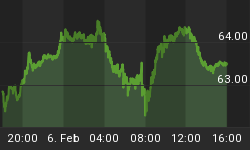Just as ultra-low interest rates start to seem normal, the markets decide otherwise. US 10-year Treasury bonds yielded about 1.9% in April and are now above 2.20%:

And the trend reversal isn't limited to the US. Across Europe and Asia rates have spiked in the past month. From Bloomberg:

What does this mean? Several things, potentially:
-
Markets tend to reverse when everyone finally accepts that the dominant trend is going to continue. This could be one of those times, as negative rates came to be accepted as inevitable and (for a growing number of deluded statists) actually good, leading traders to anticipate more of the same. In other words, the trade got too crowded.
-
Investors might be losing faith in governments' ability to maintain the value of even strong currencies like the dollar and Swiss franc, which would make negative-yield bonds double losers. To which one can only respond, "really, you just figured that out??"
-
All the talk of making cash illegal led a critical mass of people to consider the implications and conclude that such a world is not one in which they want to live.
-
It means nothing, just a hiccup in a dominant secular trend that will take interest rates into sharply negative territory world-wide and result in a cashless society where central banks have unfettered ability to peg interest rates, equity prices and pretty much everything else wherever they want.















